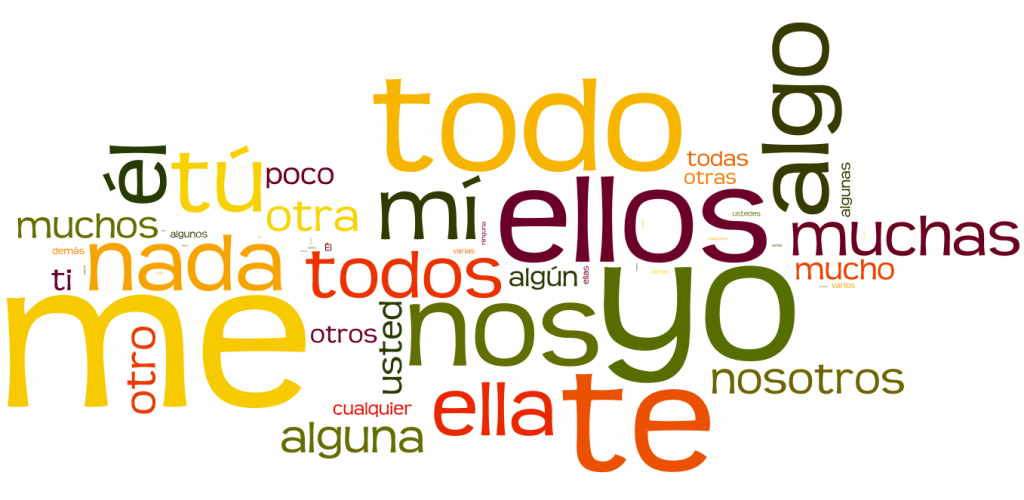A pronoun is a word used to replace a noun. It is commonly used to avoid repeating a previously mentioned noun known as the antecedent. In the following example, the pronoun ella is used to replace the underlined antecedent una hermana.
Tengo una hermana que vive en la Florida en Jensen Beach. Ella está allá, es mayor que yo dos años.I have a sister who lives in Florida in Jensen Beach. She is there, she is two years older than I am.
Types of Pronouns
The different kinds of pronouns are named according to their grammatical function.
Subject Pronouns
| yo I | nosotros/nosotras we |
| tú you | |
| él/ella/usted he/she/formal you | ellos/ellas/ustedes they/you plural |
Direct Object Pronouns
| me me | nos us |
| te you | |
| lo/la him/her/it/formal you | los/las them/you plural |
Reflexive Pronouns
| me myself | nos ourselves |
| te yourself | |
| se himself/herself/itself |
se them/plural you |
Demonstrative Pronouns
| Singular | Plural | Translation | |||
|---|---|---|---|---|---|
| Masculine | Feminine | Masculine | Feminine | Neuter | |
| este | esta | estos | estas | esto | this, these |
| ese | esa | esos | esas | eso | that, those |
| aquel | aquella | aquellos | aquellas | aquello | that, those (far in distance or time) |
Relative Pronouns
- quien, quienes who/whom
- que, el/la/los/las que, el/la/los/las cual that
- cuyo/cuya/cuyos/cuyas whose
Indefinite Pronouns
- alguien someone
- algo something
- nadie no one
- nada nothing
- muchos many
- pocos few
Interrogative Pronouns*
- qué what
- quién/quiénes who
- dónde where
- cómo how
- cuándo when
- cuál which
*These pronouns have an accent mark when they are used in a question or indirect question but otherwise don’t have an accent mark. Compare the two examples below.
¿Cuándo y dónde naciste?When and where were you born? El área de donde yo vengo es un área muy árida.
The area where I come from is very arid.
